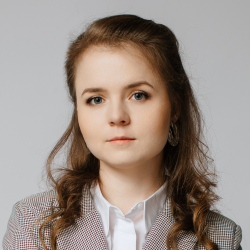
Infinitive or gerund

Infinitive

Инфинитив – это неопределенная форма глагола, которая отвечает на вопросы «Что делать? Что сделать?»

We use infinitive

Функции инфинитива в предложении:
1. Подлежащее.
To be or not to be , that is the question .
2. Дополнение.
Bill asked me to help him with his homework .
3.Часть составного сказуемого
Bill should give her some money .
4.Определение (признак, качество, свойство предмета)
I have my children to look after .
5. Часто используется в предложениях в качестве вводных слов или фраз.
To tell the truth, I don’t really like tulips .

Инфинитив с частицей to употребляется
1. После прилагательных: nice , good , sorry , happy , glad etc.
Bill was glad to see me.
2.Для указания цели действия etc.
Bill called me to tell the news.
3.После глаголов/выражений: agree, promise, wait, want, wish, hope, know how, learn, prepare, ask, choose, decide, fail etc.
Bill wants to come on time .
4. После выражений c would: would like, would love etc.
Bill would like to have some tea.

Gerund

Герундий (-ing форма) - это особая форма глагола, которая выглядит как глагол с окончанием -ing , но имеет качества существительного (поэтому может отвечать на вопрос «Что?» ).
reading – чтение

We use gerund

Функции герундия в предложении:
1. Подлежащее.
Smoking can destroy your health .
2. Дополнение.
Bill likes making people happy .
3. Часть составного сказуемого, следуя за глаголом-связкой to be в своих грамматических формах.
Our duty is taking care of those, who need help .

Герундий употребляется
1. С глаголами и фразами, которые обозначают предпочтение: like, love, hate, dislike, enjoy, good at, fond of (любить), keen on (сосредоточиться).
Bill hates waiting .
2. После фразовых глаголов: look forward to (ожидать), carry on (продолжать), take up (принимать, занимать).
Bill is looking forward to going on holiday.
3.После определенных глаголов: avoid (избегать), mind (иметь ввиду), suggest (предлагать), discuss, keep, miss, practice, quit (оставлять), recommend.
Bill suggested ordering pizza.
4. После предлогов: in, at with, of, for, about, instead of, in spite of.
Are you interested in going to London with me next week?

Let's practice!
Translate from English into Russian:
1. I am thinking of inviting Bill to my party.
2. I don’t like writing letters.
3. Bill enjoys watching football with his girlfriend.
4. She has always dreamt of going abroad.
5. Bill hates cooking.
6. After checking the students’ papers, the teacher left the classroom.
7. Ann gave up the idea of visiting New York.
8. Alex gave up smoking.
9. Go on speaking.
10. I thanked her for helping me.

Let's practice!
Put the verbs in brackets into the infinitive or –gerund:
1.I really enjoy (to go) in the mountain.
2. We decide (to have) lunch in a restaurant.
3. He avoids (to eat) a lot of meat – isn’t good for his health
4. My mum dislikes (to cook) .
5. Where did you learn (to speak) Chinese?
6. I decided (to have) dinner in a café.
7. She doesn’t want (to go) with us to the party.
8. Mike and Lola don’t enjoy (to sing) songs.
9. Where did you learn (to drive) a car?
10. I hate (to walk) up early.
11. We need ( to go ) home now.
12. Where do you enjoy (to spend) your free time?







































